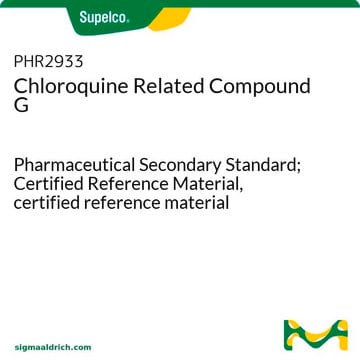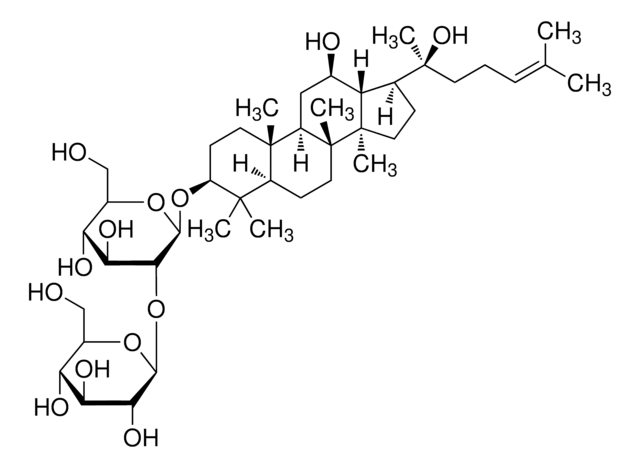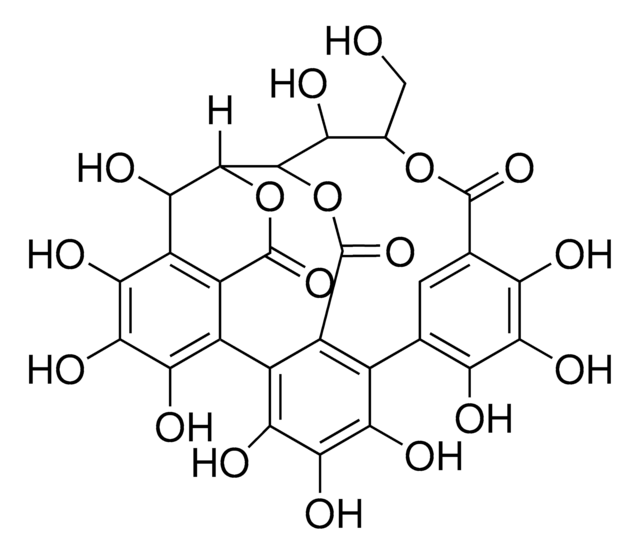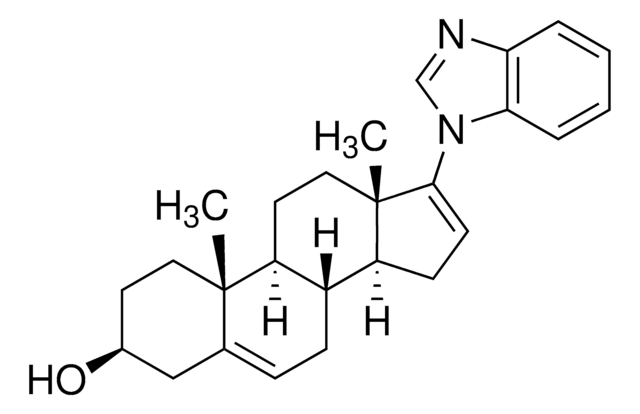SMB00975
Bisdesethylchloroquine Hydrochloride
Synonym(s):
Bisdesethyl chloroquine hydrochloride, Didesethylchloroquine hydrochloride
Sign Into View Organizational & Contract Pricing
All Photos(1)
About This Item
Empirical Formula (Hill Notation):
C14H18ClN3 · xHCl
Molecular Weight:
263.77 (free base basis)
MDL number:
NACRES:
NA.77
Recommended Products
General description
Bisdesethylchloroquine is an immediate metabolite of hydroxychloroquine and chloroquine. These are antimalarial drugs used clinically in the treatment of rheumatoid arthritis (RA), systemic lupus erythematosus (SLE) and other inflammatory rheumatic diseases. These drugs interfere with lysosomal activity and autophagy, interact with membrane stability and alter signalling pathways and transcriptional activity, which can result in modulation of cytokine production and certain co-stimulatory molecules. Hydroxychloroquine and chloroquine mode(s) of action are still emerging and their metabolism are of great interest. Metabolic Pathway: Cytochrome P450 drug.
Application
Metabolomics research
Other Notes
For additional information on our range of Biochemicals, please complete this form.
Signal Word
Warning
Hazard Statements
Precautionary Statements
Hazard Classifications
Acute Tox. 4 Oral
Storage Class Code
11 - Combustible Solids
WGK
WGK 3
Flash Point(F)
Not applicable
Flash Point(C)
Not applicable
Choose from one of the most recent versions:
Certificates of Analysis (COA)
Lot/Batch Number
Don't see the Right Version?
If you require a particular version, you can look up a specific certificate by the Lot or Batch number.
Already Own This Product?
Find documentation for the products that you have recently purchased in the Document Library.
Yashpal S Chhonker et al.
Journal of chromatography. B, Analytical technologies in the biomedical and life sciences, 1072, 320-327 (2017-12-06)
Hydroxychloroquine (HCQ) has been shown to disrupt autophagy and sensitize cancer cells to radiation and chemotherapeutic agents. However, the optimal delivery method, dose, and tumor concentrations required for these effects are not known. This is in part due to a
Shrey Kanvinde et al.
Acta biomaterialia, 82, 158-170 (2018-10-21)
Inflammatory bowel disease is a chronic inflammation of the gastrointestinal tract with poor understanding of its pathogenesis and no effective cure. The goal of this study was to evaluate the feasibility of orally administered non-degradable polymeric chloroquine (pCQ) to locally
Bruno Charlier et al.
Biomedical chromatography : BMC, 32(8), e4258-e4258 (2018-04-19)
Hydroxychloroquine (HCQ) is an old antimalarial drug that has proven to be a safe and effective treatment for systemic lupus erythematosus (SLE) and other autoimmune diseases. Since hematic concentration of HCQ is closely related to the therapeutic response, monitoring the
Our team of scientists has experience in all areas of research including Life Science, Material Science, Chemical Synthesis, Chromatography, Analytical and many others.
Contact Technical Service








